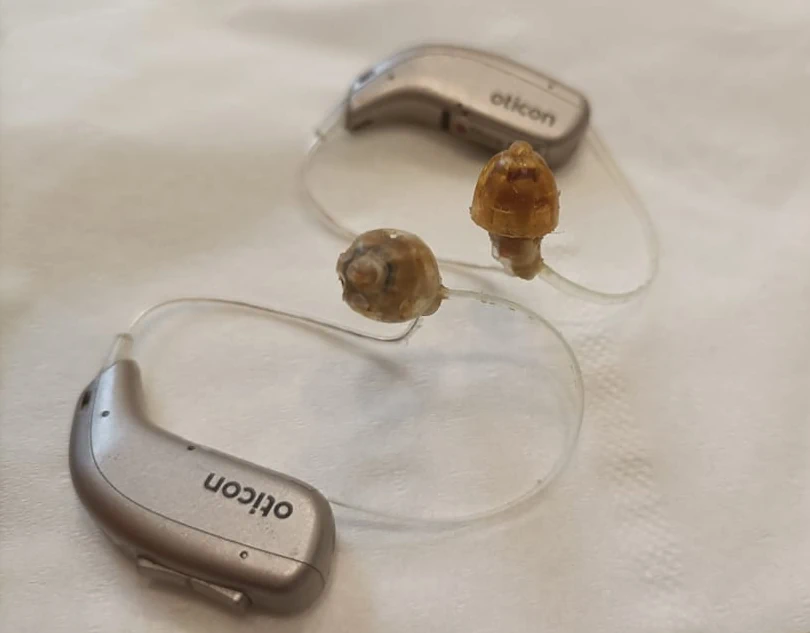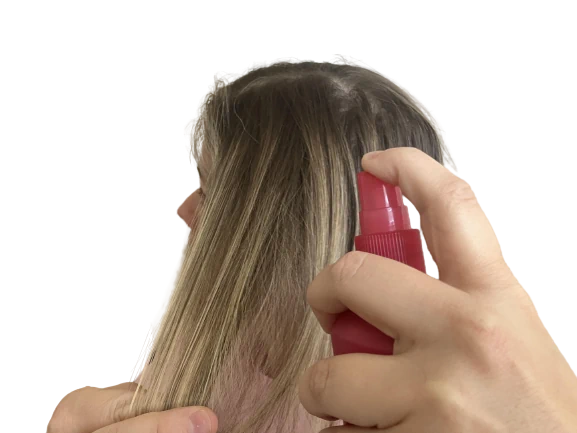This post contains affiliate links.
As an expert audiologist, I often address concerns about the safe use of personal care products around hearing aids. One common question is whether it’s okay to use hairspray while wearing hearing aids. While hairspray is a staple for many who want their hairstyle to hold in place, it contains chemicals that can cause unintended damage to delicate hearing aid components. In this article, I’ll explain the risks, how to respond if your hearing aids are exposed, and the best prevention methods to keep your devices in top shape.
Understanding the Components of Hearing Aids
To see why hairspray can be harmful, it’s important to understand the core components of a hearing aid. These devices contain highly sensitive parts including:
- Microphones – Capture environmental sound.
- Receiver (speaker) – Delivers amplified sound into the ear canal.
- Amplifier & circuitry – Processes and boosts sound.
- Protective casing & seals – Keep internal components safe from dust and moisture.
When any of these parts are coated with sticky or corrosive substances, performance suffers — sometimes permanently.
The Potential Risks of Hairspray on Hearing Devices
Hairspray contains alcohol, polymers, and propellants. When sprayed, it forms a fine mist that can easily land on hearing aids. This mist can seep into microphone ports, stick to the casing, or even infiltrate internal components. The main risks include:
1. Damage to Microphones
Microphones are crucial for capturing sound, but their openings are extremely small. Even a thin layer of hairspray residue can muffle sound or cause microphone failure. Over time, you might notice weaker sound quality or distortion.
2. Interference with Circuitry
Hairspray particles can compromise the electrical pathways inside hearing aids. They may erode waterproof seals, leading to corrosion, static, or complete device failure.
What to Do If Hairspray Gets on Hearing Aids

If it’s a one-time exposure, you may not need to worry. But with regular use, sticky buildup can cause problems. Here’s how to respond:
- Stop spraying near your hearing aids: Prevent further damage by changing your routine immediately.
- Remove and inspect: Take your hearing aids out and check for visible residue or stickiness.
- Contact your audiologist: Let them assess whether professional cleaning or repairs are needed. They can also run real ear measurements to confirm sound performance.
- Follow repair recommendations: If residue has reached internal parts, professional servicing is essential.
- Don’t DIY clean unless instructed: Improper cleaning can worsen damage or void warranties.
- Use backup hearing solutions: Ask about loaner devices, a pocket talker, or a backup hearing aid while yours are being serviced.
- Review care habits: Learn long-term hearing aid protection methods from your audiologist.
Safe Hairspray Use with Hearing Aids
Preventing exposure is the easiest and cheapest solution. Follow these guidelines:
1. Remove Hearing Aids Before Spraying
This is the most reliable protection method. Spray your hair first, wait for it to dry, then put your hearing aids back in.
2. Use Protective Covers
If removal isn’t possible, consider slip-on protective covers from hearing aid accessory brands.
3. Let Product Settle Before Inserting Aids
Even after spraying, aerosol particles remain airborne for a few minutes. Let them settle before wearing your devices.
4. Maintain a Cleaning Routine
Regular cleaning using safe methods recommended by professionals will remove small amounts of buildup before they cause bigger problems.
Conclusion
While hairspray can help you look your best, it can also be your hearing aids’ worst enemy. A little prevention goes a long way — remove your devices before spraying, clean them regularly, and get them checked if you suspect residue buildup. Your hearing aids are a significant investment, so protect them to ensure years of reliable performance.
FAQs About Hairspray and Hearing Aids
Can hairspray permanently damage hearing aids?
Yes. Regular exposure can cause microphone blockage, corrosion, or complete failure that requires costly repairs.
How can I clean hairspray off hearing aids at home?
Only clean the exterior casing with a soft, dry cloth. Never use liquids or solvents. For microphone ports or internal buildup, see your audiologist.
Will “alcohol-free” hairspray prevent damage?
Not necessarily — even alcohol-free formulas can leave sticky residue and clog small components.
Is it safe to use hairspray in another room?
Yes, applying hairspray away from your hearing aids eliminates the risk of exposure.
Should I replace hearing aid covers after exposure?
If residue is present, replace disposable covers or have custom molds professionally cleaned.

